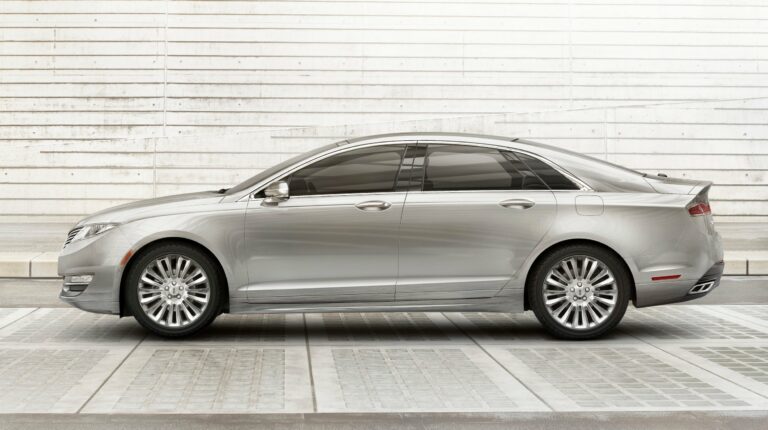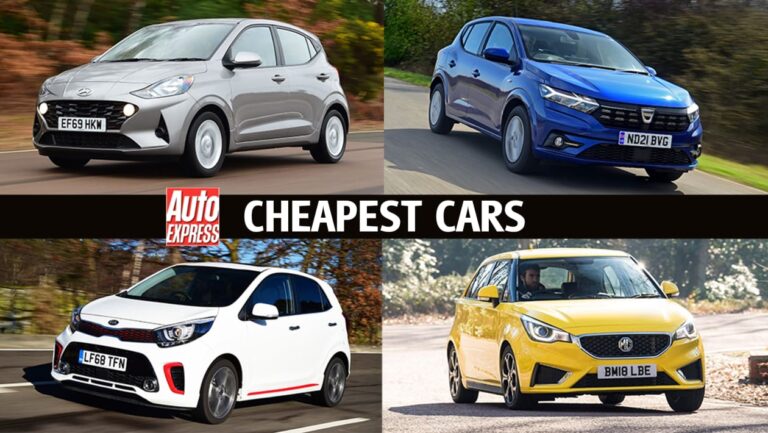Reliable Car Brands: Your Ultimate Guide to Automotive Longevity and Peace of Mind
Reliable Car Brands: Your Ultimate Guide to Automotive Longevity and Peace of Mind cars.truckstrend.com
In the vast and ever-evolving automotive landscape, one quality consistently stands out as paramount for discerning buyers: reliability. More than just a buzzword, a reliable car is a promise of enduring performance, fewer unexpected breakdowns, lower long-term ownership costs, and, most importantly, peace of mind. It’s the vehicle that consistently starts when you turn the key, safely transports your family, and retains its value long after you drive it off the lot.
This comprehensive guide delves deep into the world of reliable car brands, exploring what makes a vehicle dependable, why it’s a critical factor in your purchasing decision, and which brands have consistently earned top marks for their unwavering commitment to quality and durability. Whether you’re a first-time buyer or looking to upgrade, understanding reliability is key to making an informed and satisfying investment.
Reliable Car Brands: Your Ultimate Guide to Automotive Longevity and Peace of Mind
What Defines Car Reliability?
Reliability in the automotive context isn’t a single metric but a multifaceted concept encompassing several key attributes:
- Infrequent Breakdowns: The most obvious sign of reliability is a car that rarely leaves you stranded or requires unscheduled repairs. This points to robust engineering and quality components.
- Low Repair Frequency and Cost: When repairs are needed, they should be minor and infrequent, and the parts and labor costs should be reasonable. Cars with complex, proprietary systems that require specialized tools or highly expensive parts often rank lower in this aspect, even if they don’t break down often.
- Longevity and Durability: A reliable car is built to last, with its major components (engine, transmission, suspension) designed to withstand years of regular use and high mileage without significant degradation.
- Consistent Performance: The vehicle maintains its intended performance characteristics over time, without significant drops in power, fuel efficiency, or handling.
- High Owner Satisfaction: Owners of reliable cars generally report high levels of satisfaction due to fewer headaches, lower running costs, and a consistent driving experience.
- Strong Resale Value: Reliable cars often command higher resale values because their reputation for durability makes them desirable in the used car market.
- Safety System Integrity: While often separate, the consistent functionality of safety features and structural integrity over time contributes to a car’s overall reliability in protecting its occupants.

Independent organizations like J.D. Power, Consumer Reports, and RepairPal meticulously gather data from millions of vehicle owners to rate brands and models based on problems reported, repair costs, and overall satisfaction, providing invaluable insights into real-world reliability.
Why Prioritize Reliability When Buying a Car?
Choosing a reliable car offers a cascade of benefits that extend far beyond the initial purchase price:
- Significant Financial Savings: This is arguably the most compelling reason. Reliable cars incur fewer unexpected repair bills, saving you hundreds, if not thousands, of dollars over their lifespan. They also tend to have better fuel efficiency and lower insurance premiums in some cases. Furthermore, their strong resale value means you recoup more of your initial investment when it’s time to sell or trade up.
- Unparalleled Peace of Mind: There’s immense comfort in knowing your car is dependable. You won’t constantly worry about breaking down on a long trip, being late for work due to an unexpected issue, or facing a hefty repair bill you hadn’t budgeted for.
- Enhanced Safety: A car that functions as intended is inherently safer. Critical components like brakes, steering, and engine performance are less likely to fail unexpectedly in a reliable vehicle, reducing the risk of accidents.
- Convenience and Time Savings: Less time spent at the mechanic’s shop means more time for you. Reliable cars require only routine maintenance, freeing up your schedule and reducing logistical hassles.
- Environmental Responsibility: A car that lasts longer and performs efficiently contributes less to landfill waste and can have a smaller carbon footprint over its extended lifespan.

Top Contenders: A Look at Historically Reliable Car Brands
While reliability can vary by specific model and year, certain brands have consistently demonstrated a commitment to quality, durability, and owner satisfaction.
The Unquestionable Leaders: Japanese Brands
- Toyota: Consistently tops reliability charts globally. Known for their robust engineering, straightforward designs, and exceptional longevity. Models like the Camry, Corolla, RAV4, and Highlander are legendary for their dependability.
- Lexus: Toyota’s luxury division, Lexus inherits the parent company’s reliability ethos while adding premium materials and advanced features. They frequently outperform other luxury brands in reliability, offering a smooth, quiet ride with minimal fuss.
- Honda: Another perennial favorite, Honda is celebrated for its reliable engines, well-built vehicles, and excellent resale value. The Civic, Accord, CR-V, and Odyssey are staples of reliability.
- Mazda: In recent years, Mazda has significantly improved its reliability ratings, often rivaling Toyota and Honda. Their "Skyactiv" technology focuses on efficiency and driver engagement without compromising durability.
- Subaru: Particularly known for their symmetrical all-wheel-drive systems and boxer engines, Subaru offers robust vehicles popular in diverse climates. While historically having some specific quirks (like head gasket issues on older models), modern Subarus are highly reliable, especially models like the Forester and Outback.
The Rising Stars: Korean Brands
- Hyundai: Hyundai has made incredible strides in quality and reliability over the last two decades. Backed by generous warranties, their vehicles offer excellent value and increasingly strong dependability.
- Kia: Sharing platforms and technology with Hyundai, Kia has also seen a dramatic improvement in reliability. Their stylish designs and comprehensive warranties make them attractive choices.
The Premium Performers (with Nuances): German Brands
- BMW, Mercedes-Benz, Audi: While these brands engineer sophisticated vehicles with high performance and luxurious interiors, their reliability can be a mixed bag compared to Japanese counterparts. They often score well for initial quality but can incur significantly higher repair costs for specific, complex components as they age. Owners often find them reliable in terms of not leaving them stranded, but the cost of ownership over time can be considerably higher due to premium parts and specialized labor.
The Improving Domestic Players: American Brands
- Ford & Chevrolet: Both American giants have made significant strides in improving reliability, especially in their truck and SUV segments. While historically not as consistent as Japanese brands, newer models show promising reliability scores, and their parts are generally more affordable and widely available than some European brands.
Factors Influencing a Car’s Reliability (Beyond Brand)
While brand reputation is a strong indicator, a car’s true reliability is also shaped by:
- Maintenance History: The single biggest factor. Regular, scheduled maintenance using recommended fluids and parts is paramount. A well-maintained car from a less reliable brand can outlast a neglected car from a top-tier brand.
- Driving Habits: Aggressive driving, frequent hard braking, rapid acceleration, and towing beyond limits put undue stress on components, shortening their lifespan.
- Climate and Environment: Extreme hot or cold temperatures, salty roads (leading to rust), and dusty conditions can accelerate wear and tear.
- Specific Model and Year: Even within highly reliable brands, certain models or specific model years might have known issues or recalls. Always research the particular vehicle you’re interested in.
- Technology Level: While modern technology enhances safety and convenience, more complex electronic systems can introduce more potential points of failure, though this is becoming less common as tech matures.
How to Research Car Reliability Before Buying
Don’t just take a brand’s word for it. Empower yourself with information:
- Consult Independent Ratings:
- Consumer Reports: Known for extensive testing and owner surveys, providing detailed reliability predictions and ratings.
- J.D. Power: Conducts various studies, including Vehicle Dependability Study (VDS) for 3-year-old vehicles and Initial Quality Study (IQS) for new vehicles.
- RepairPal: Offers average repair costs and reliability ratings for specific models.
- Read Owner Reviews and Forums: Real-world experiences from owners can provide invaluable insights into common issues, maintenance costs, and overall satisfaction. Check sites like Edmunds, Kelley Blue Book, and dedicated model forums.
- Check Recalls and Technical Service Bulletins (TSBs): The National Highway Traffic Safety Administration (NHTSA) website is a crucial resource for checking recalls. TSBs (issued by manufacturers to mechanics for common issues) can also hint at potential problems.
- Get a Pre-Purchase Inspection (PPI): For used cars, a thorough inspection by an independent, trusted mechanic is non-negotiable. They can identify existing problems and potential future issues.
- Review Warranty Information: A strong warranty, especially for powertrain components, indicates a manufacturer’s confidence in their product. Certified Pre-Owned (CPO) programs often extend original warranties and include thorough inspections.
Challenges and Misconceptions About Reliability
- "Expensive means reliable": Not necessarily. Luxury cars often have more complex systems and premium parts, leading to higher repair costs even if breakdown frequency is low.
- "Brand X is always reliable": Reliability can fluctuate. A brand might excel in one segment (e.g., SUVs) but struggle in another (e.g., electric vehicles in their early iterations). Always research specific models and model years.
- Newer models vs. established models: While new models often feature exciting tech, first-year models can sometimes have "teething problems" that are ironed out in subsequent years.
- Maintenance costs vs. breakdown frequency: A car might rarely break down, but when it does, the repair might be exorbitantly expensive. Consider both aspects.
Tips for Maintaining Your Car’s Reliability
Even the most reliable car needs care to stay that way:
- Follow the Manufacturer’s Maintenance Schedule: This is your bible for optimal car health. Don’t skip oil changes, fluid checks, tire rotations, or filter replacements.
- Use Recommended Fluids and Parts: Stick to the oil type, coolant, and other fluids specified in your owner’s manual. Using aftermarket parts of questionable quality can compromise performance and durability.
- Address Warning Lights Promptly: Don’t ignore the check engine light, tire pressure warning, or any other indicator. Get them diagnosed and fixed quickly to prevent minor issues from escalating.
- Drive Responsibly: Avoid aggressive acceleration and braking. Ease over speed bumps. Don’t overload your vehicle or exceed towing capacities.
- Keep Records: Maintain a detailed log of all maintenance, repairs, and service appointments. This helps track your car’s health and can boost its resale value.
Price Table: Representative Reliable Car Brands & Models
This table provides an illustrative overview of starting MSRPs for popular new models from highly reliable brands, along with an estimated used price range for a 3-5 year old model, showcasing the breadth of options available. Prices are approximate and can vary based on trim, options, location, and market conditions.
| Brand | Representative Model | Vehicle Type | New Starting MSRP (Approx.) | Est. Used Price Range (3-5 Yrs Old) | Key Reliability Factor |
|---|---|---|---|---|---|
| Toyota | Camry | Mid-size Sedan | $26,000 – $37,000 | $18,000 – $28,000 | Legendary durability, low maintenance, high resale. |
| RAV4 | Compact SUV | $28,000 – $39,000 | $20,000 – $32,000 | Consistent performer, robust engineering. | |
| Honda | Civic | Compact Sedan | $24,000 – $31,000 | $16,000 – $24,000 | Efficient engines, quality build, fun to drive. |
| CR-V | Compact SUV | $29,000 – $39,000 | $20,000 – $30,000 | Practicality, strong resale, low reported issues. | |
| Lexus | ES | Luxury Sedan | $43,000 – $53,000 | $30,000 – $45,000 | Toyota reliability with premium comfort and features. |
| RX | Luxury SUV | $49,000 – $62,000 | $35,000 – $50,000 | Smooth ride, luxurious, consistently reliable. | |
| Mazda | CX-5 | Compact SUV | $29,000 – $39,000 | $20,000 – $30,000 | Improved quality, engaging driving, stylish. |
| Subaru | Forester | Compact SUV | $27,000 – $37,000 | $19,000 – $29,000 | Standard AWD, robust build, good for all seasons. |
| Hyundai | Elantra | Compact Sedan | $22,000 – $28,000 | $15,000 – $22,000 | Excellent warranty, improved quality and features. |
| Kia | Sportage | Compact SUV | $28,000 – $39,000 | $18,000 – $28,000 | Bold design, great value, strong warranty. |
Note: MSRPs are for base models and can increase significantly with higher trims and options. Used prices are estimates and vary greatly based on mileage, condition, and market demand.
Conclusion
Investing in a reliable car brand is one of the smartest decisions you can make as a vehicle owner. It’s not just about avoiding headaches; it’s about safeguarding your finances, ensuring your safety, and enjoying years of dependable transportation. While brands like Toyota, Honda, and Lexus consistently lead the pack, the landscape is evolving, with Mazda, Hyundai, and Kia making significant strides.
Remember, reliability isn’t solely about the badge on the hood; it’s a combination of robust engineering, diligent maintenance, and responsible driving habits. By prioritizing research, understanding what makes a car dependable, and committing to proper care, you can drive with confidence, knowing you’ve made a sound investment in a vehicle that will serve you well for the long haul.
Frequently Asked Questions (FAQ) About Reliable Car Brands
Q1: Which car brand is the most reliable overall?
A1: While rankings can shift slightly year by year, Toyota and its luxury division, Lexus, consistently rank at the very top for overall reliability across various independent studies (e.g., J.D. Power, Consumer Reports). Honda and Mazda also frequently score very highly.
Q2: Are luxury cars less reliable than economy cars?
A2: Not necessarily less reliable in terms of breaking down, but luxury cars often have more complex systems, specialized components, and higher labor costs for repairs. This means that while they might not break down more often, the cost to fix them when they do can be significantly higher than for an economy car.
Q3: Does mileage affect a car’s reliability?
A3: Yes, higher mileage generally means more wear and tear on components, which can eventually lead to issues. However, a high-mileage car with a meticulous maintenance history can be more reliable than a lower-mileage car that has been neglected. It’s about how the miles were accumulated and how well the car was cared for.
Q4: Is it better to buy a new or used reliable car?
A4: Both have pros and cons. New reliable cars offer the latest features, full warranty coverage, and the assurance of being the first owner. Used reliable cars (especially those 3-5 years old) offer significant savings due to depreciation, often retaining much of their reliability while being much more affordable. A Certified Pre-Owned (CPO) vehicle from a reliable brand can offer a good balance of value and peace of mind.
Q5: How long should a reliable car last?
A5: With proper maintenance, a reliable car brand’s vehicle can easily last 200,000 miles or more, and many models from brands like Toyota and Honda are known to exceed 300,000 miles. Longevity depends heavily on consistent servicing and responsible driving.
Q6: Do extended warranties guarantee reliability?
A6: Extended warranties cover the cost of certain repairs, but they don’t prevent issues from occurring. A long warranty often indicates a manufacturer’s confidence in their product’s durability, but the ultimate reliability still depends on the vehicle’s inherent quality and how well it’s maintained. Always read the fine print of any warranty to understand its coverage and exclusions.







